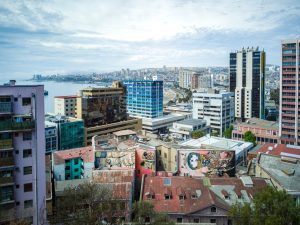The latest polls in Chile have shown that right-wing candidate Jose Antonio Kast has become the main favorite to win the upcoming presidential elections. This situation represents an unexpected surprise in the Andean nation considering that let-wing candidate Gabriel Boric has been on the top of most polls over the last few months.
Naturally, we’re talking about a delicate situation that radically changes the political scenario in Chile, considering that for many analysts it was almost inevitable that Boric was going to get elected. After all, Chile recently went through widespread protests where many Chileans expressed their discomfort not only against the right-wing administration of President Sebastian Piñera but also against the current political system.

A large number of Chileans believe that, despite the macroeconomic figures that show Chile as the most developed nation in Latin America, there’s a huge problem of inequality that needs to be solved. Also, many believe that the current political system needs to be changed through a constitutional reform since many consider it as part of Augusto Pinochet’s legacy.
The protests were characterized not only by large crowds chanting famous Chilean songs and claiming for the end of inequality, but also by numerous cases of vandalism. Of course, those who committed these types of acts weren’t the majority of Chilean protesters, but the cases of marchers destroying private properties and even Santiago’s subway system were strong enough to become a national concern.
The reasons behind Kast’s rise in Chile.
These cases of vandalism and political extremism from the political left increased the polarization that the country has been experiencing over the last few years. This way, there was a silent mass of people who disagreed with protesters and rejected the way many protesters were destroying private businesses.
In theory, this situation would’ve represented a political opportunity for President Piñera since he had the opportunity to gain the support of the vast majority of those who disagreed with the protests. However, his popularity declined worse than ever after he decided not to impose law and order against those who were committing vandalism, following the criticism from the international community.
Given this situation, Kast became the only voice in Chile’s political spectrum that publicly called for Chilean authorities to repress anyone who was committing any type of criminal act in the protests. Of course, this message resonated with the Chilean faction that never supported the protests and was afraid of the anarchy that was growing in different parts of Santiago and other cities across the country.
Despite this situation, the surprising aspect is that Kast’s performance in the latest polls only shows that the number of people who disagreed with the protests and especially the vandalism was considerably higher than expected. After all, the widespread protests and the way so many influential figures in Chile supported it, made everyone believe that the vast majority of Chileans agreed with protesters and that the left would inevitably take back the Palacio de la Moneda.
Is Kast an extremist?
One of the main questions that many people are currently asking about Kast is whether he’s a moderate or an extremist. This is quite difficult to determine considering that Kast is not exactly a right-wing politician as Colombian President Ivan Duque, but neither as Brazilian President Jair Bolsonaro.
He hasn’t expressed any radical idea regarding the change of Chile’s political system, but he has relativized the horrors of Pinochet’s dictatorship. In fact, Kast not even refers to this period as the dictatorship or the tyranny. Every time he talks about Pinochet’s right-wing dictatorship he refers to it as the “military government.”
So while he’s too extremist to be a moderate, he’s actually quite moderate to be considered an extremist. So we’ll have to wait and see the type of politician that Kast will become in case he gets elected as president.






